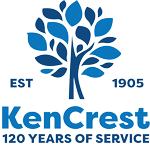Sometimes You Need to Throw Files and Get a New Stand
Spring cleaning is a beautiful tradition in multiple faiths and cultures. Everyone has struggled with clutter; there are times when particular unused objects or clothes clog up your home. It is a great feeling of “lightening the load” when the stuff is no longer cluttering your home or workspace.
In life, though, there are other things we can call ‘files;’ by that, I mean the collection of beliefs we have about life. Some of these beliefs are helpful and practical, and we can benefit from digging into them to explore our options, make good decisions, and be more caring. Other files accumulate like the dust bunnies under the bed; they are not good, are hard to get rid of, and can cause distress.
We have lots of these files in our work industries as well. They can arrive from natural progress, and we make changes, and then we hold on to them too long. For example, when sheltered work began, it filled the need for rapid employment opportunities with pay for people who had just moved from institutions.
In my career, these workshops had just begun and started to grow, and it was great to see people doing productive work and earning an income. It was great to compare life before and after the institution, where only the most capable could work, and many did not see a paycheck. We promised people it was a stepping stone to a job in the community, but that promise wasn’t kept.
We kept people and wanted all the best workers to complete the jobs. We then created a language that we could use to maintain the status quo.
Here are some of those thoughts:
These individuals only want to be with their friends.
The community is not ready for these individuals.
This is a great outcome. There is no reason to ask for more.
This is the only safe place.
These statements serve the status quo and drift from our promise that we were preparing people for full inclusion. These are files that should be thrown away.
We need to look at each person and help the person see all the possibilities on the path to authentic inclusion. We don’t want to segregate anyone or limit their potential to enjoy friends, make a difference, and get paid. The outcome starts as a dream; then, we must explore and mobilize to help the person achieve.
A few years ago, we did close our sheltered option. Other agencies have done the same; some cling to the files and believe they are right.
However, it is easier to keep those files if we stand for inclusion.
